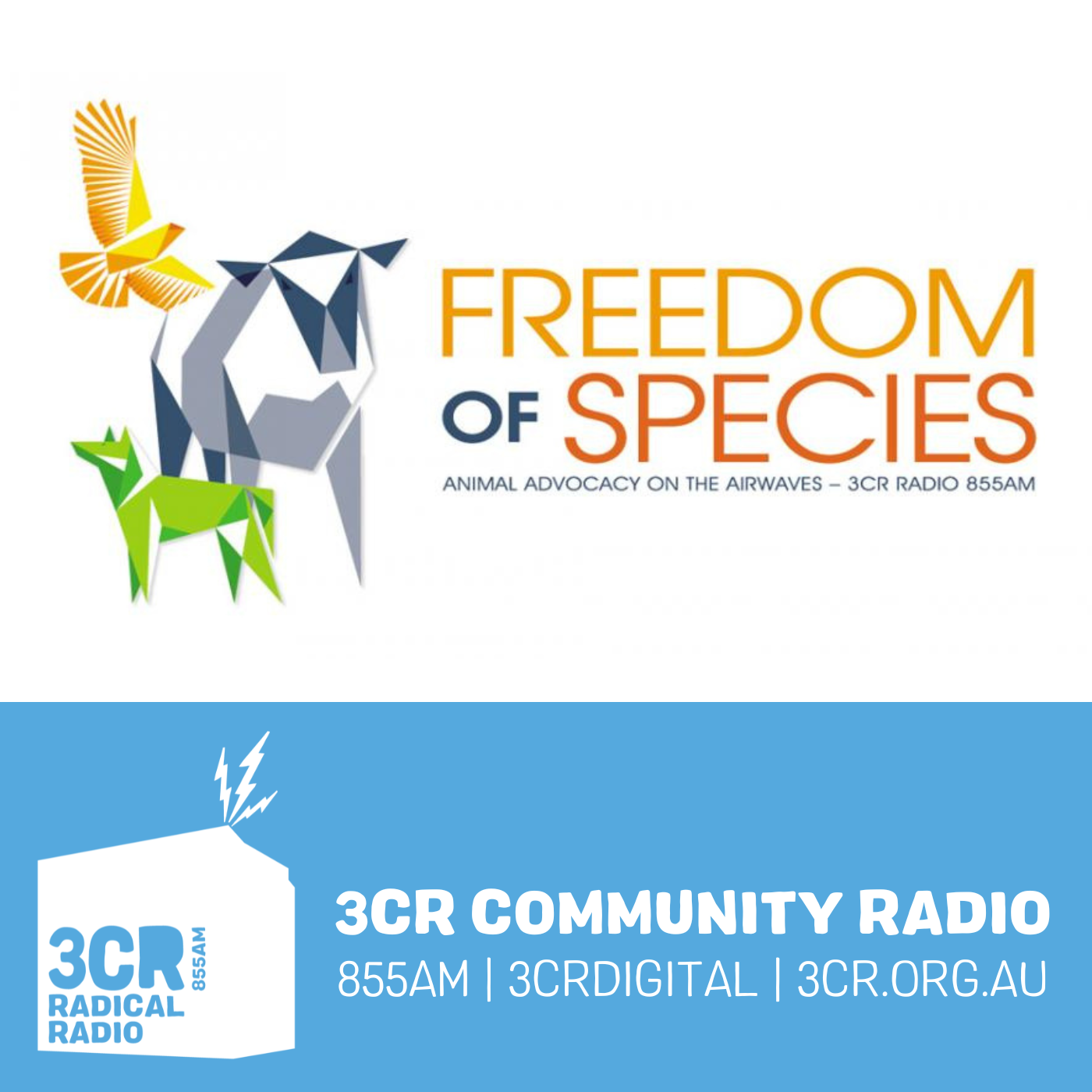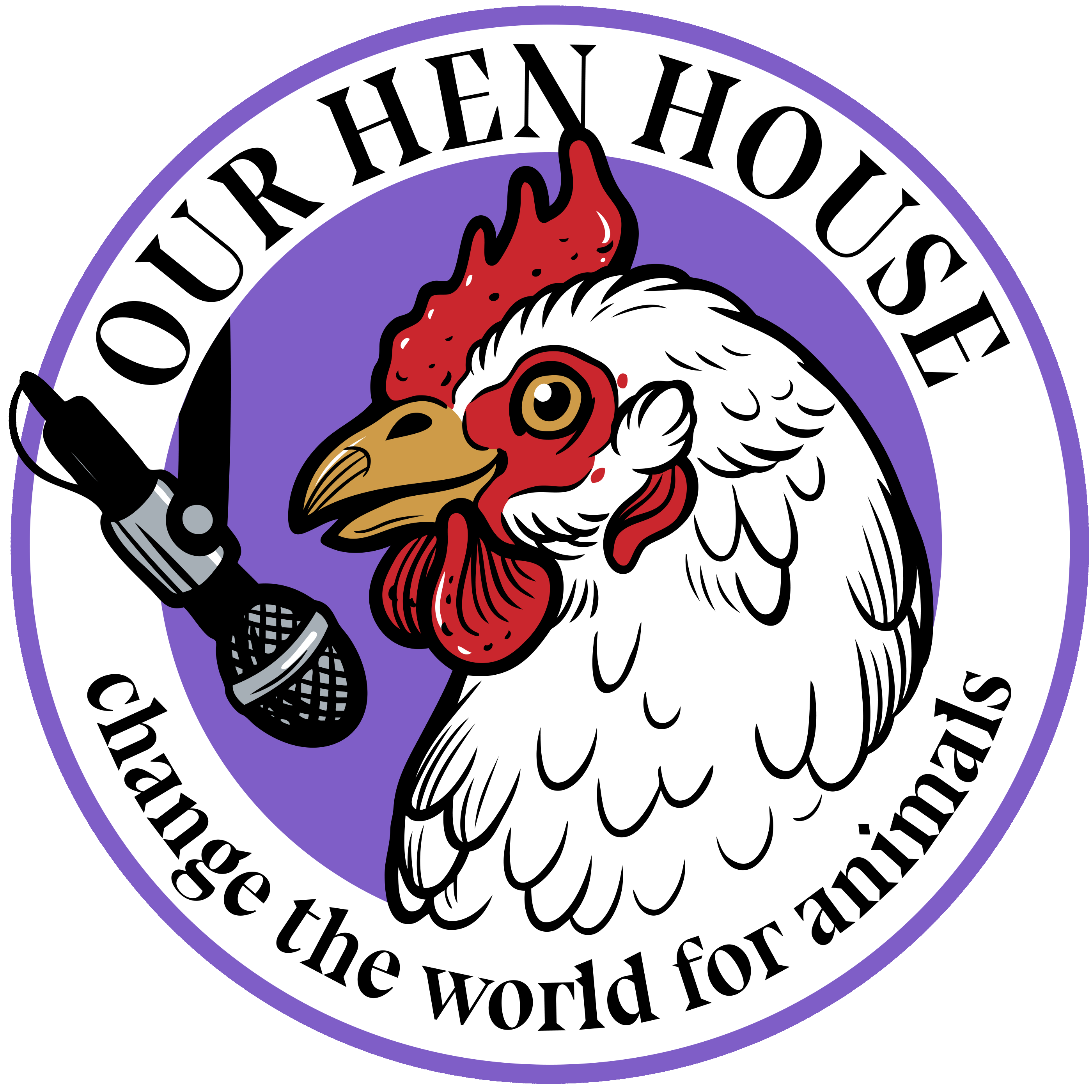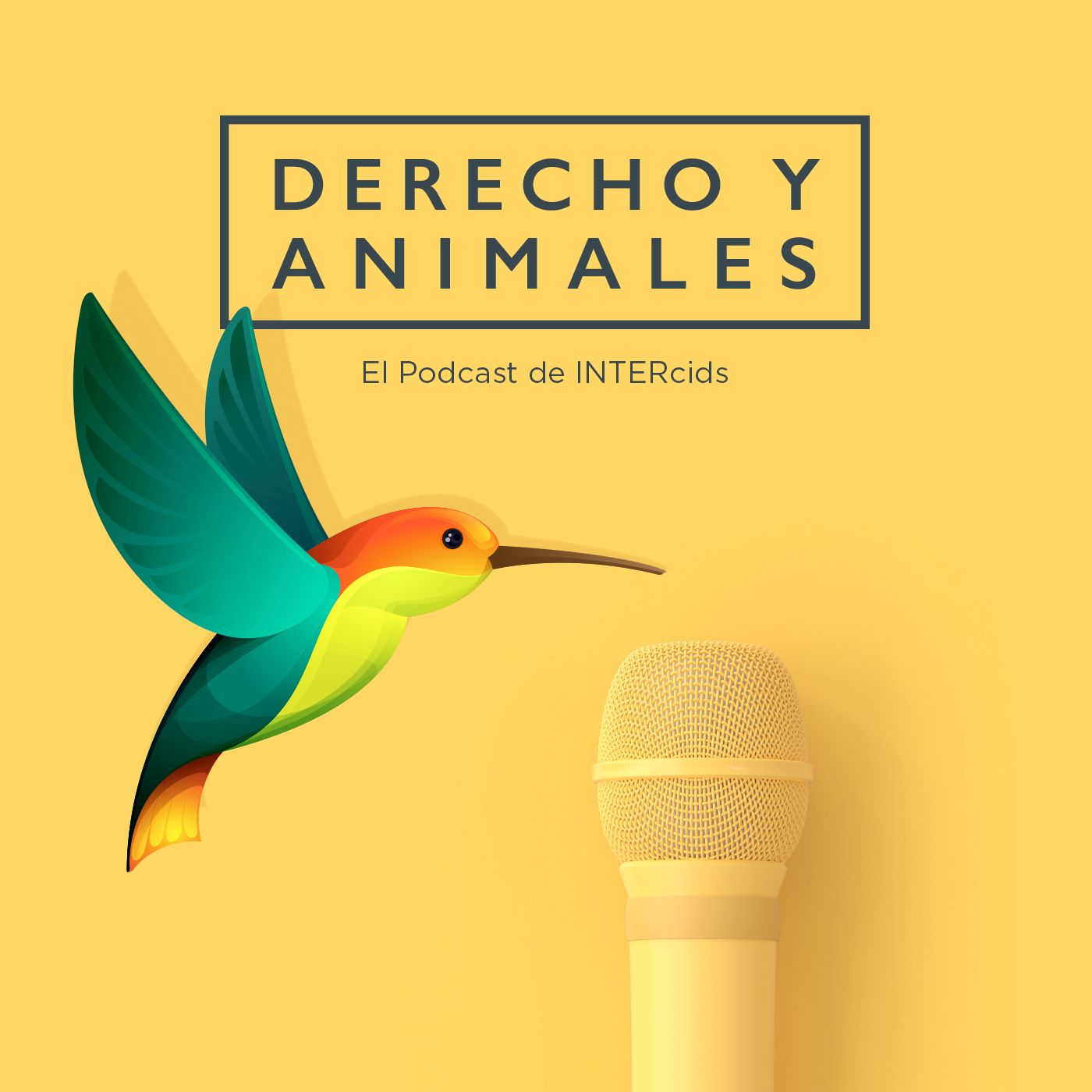
The Animal Turn
Animals are increasingly at the forefront of research questions – Not as shadows to human stories, or as beings we want to understand biologically, or for purely our benefit – but as beings who have histories, stories, and geographies of their own. Each season is set around themes with each episode unpacking a particular animal turn concept and its significance therein. Join Claudia Hirtenfelder as she delves into some of the most important ideas emerging out of this recent turn in scholarship, thinking, and being.
The Animal Turn
S5E5: Animal Testing and its Alternatives with Thomas Hartung
Claudia talks to Thomas Hartung about animal testing in pharmacology and toxicology. They discuss how animal testing involves a weighing of values as well as some of the disruptive technologies that are providing alternatives to animal testing – including stem cell technologies and artificial intelligence.
Date Recorded: 5 October 2022
Thomas Hartung, MD PhD, is the Doerenkamp-Zbinden-Chair for Evidence-based Toxicology in the Department of Environmental Health and Engineering at Johns Hopkins Bloomberg School of Public Health, Baltimore, with a joint appointment at the Whiting School of Engineering. He also holds a joint appointment for Molecular Microbiology and Immunology at the Bloomberg School. He is adjunct affiliate professor at Georgetown University, Washington D.C.. In addition, he holds a joint appointment as Professor for Pharmacology and Toxicology at University of Konstanz, Germany; he also is Director of Centers for Alternatives to Animal Testing (CAAT) of both universities. CAAT hosts the secretariat of the Evidence-based Toxicology Collaboration and manages collaborative programs on Good Read-Across Practice, Good Cell Culture Practice, Green Toxicology, Developmental Neurotoxicity, Developmental Immunotoxicity, Microphysiological Systems and Refinement. As PI, he headed the Human Toxome project funded as an NIH Transformative Research Grant and the series of annual Microphysiological Systems World Summits starting in 2022 by 52 organizations. He is Field Chief Editor of Frontiers in Artificial Intelligence. He is the former Head of the European Commission’s Center for the Validation of Alternative Methods (ECVAM), Ispra, Italy, and has authored more than 620 scientific publications with more than 41,000 citations (h-index 105). His toxicology classes on COURSERA had more than 15,000 active learners. Connect with Thomas on Twitter (@ToxmasHartung).
Featured:
- Toxicology for the twenty-first century by Thomas Hartung
- A Roadmap for the Development of Alternative (Non-Animal) Methods for Systemic Toxicity Testing By David Basketter et al
- Study Illustrates A Quicker And Less Expensive Way To Explore Gene-Plus-Environment Causes Of Autism Spectrum Disorder And Other Conditions via John Hopkins
- A Johns Hopkins collaboration has demonstrated that the novel coron
Animals in Politics, Law, and Ethics researches how we live in interspecies societies and polities.
Biosecurities Research Collective
The Biosecurities and Urban Governance Research brings together scholars interested in biosecurity.
iROAR Network
iROAR brings together podcasts that aim is to make the world a better place for animals.
Disclaimer: This post contains affiliate links. If you make a purchase, I may receive a commission at no extra cost to you.
The Animal Turn is hosted and produced by Claudia Hirtenfelder and is part of the iROAR Network. Learn more on our website.
- Leave a Review on Podchaser
- Check out The Animal Turn Merch.
- Support us on Patreon, Buy Me a Coffee, and Buzzsprout.
00 - Introduction
06:10 – Welcome and a bit about Thomas
- Something that has been missing in the season so far is a discussion about testing on animals
- Interested in the alternatives to animal testing
- Animals are used in pharmacology and toxicology and it is a challenge to remove them, “but I like challenges”
- A professor of pharmacology and heading efforts on alternatives to animal testing
08:55 – What are Pharmacology and Toxicology?
- Pharmacology is a type of science that tries to understand how substances applied to humans and animals to improve the outcome of certain diseases – drugs trying to help the organism
- Toxicology does the opposite and tries to decide what is harmful and takes measures to understand what is driving diseases
- Three ways to get ill – genes, infection, and exposure
- A lot of exposure is chemicals
- Pharmacology and Toxicology are trying to make life safe
- Both industries and disciplines
- Looking at drugs and chemical threats are recent
- Animals only started to be used when first drugs were being marked. Such as a cough syrup in the 30s which killed almost 100 kids and resulted in the FDA and led to a lot of safety testing
- The Food and Drug Act in the 1930s started a lot of “safety-thinking” and “this has really developed over time”
13:18 – Animals in Experiments
- “You know, we have not done animal experiments forever. Animal experiments really came up in the 20s of the last century. Before nobody would have believed you can use a mouse, you can use a rat to protect humans,” Thomas
- Starting with these small animals to help understanding new drugs – this was the start of using animals to test drugs on in the life sciences
- Difficult to conclude something is problematic – took 50 years to prove that smoking causes lung cancer.
- Cell culture and computers did not exist
- Representation of experiments in movies and activists
15:38 – How efficient are experiments in developing new drugs?
- It is not black and white
- “We make scientific progress which helps save lives,” Thomas
- People are living longer because of interventions into hygiene and medical innovation
- “We cannot deny that there was medical progress with the best and only tool we had at hand, but we are not seventy kilogram rats,” Thomas
- If you study things closer to humans you will have better hits
- There is no other area of science where people are so attached to a specific method for 60 or even 80 years
- Why the attachment to outdated practices?
- People are risk adverse because people are happy about the status quo
- It is not easy in science to draw an ultimate conclusion about a specific substance
- We are not self-critical, there is no incentive to review the systems you are working with
- “Around 95% of the drugs that go into human trials do not work,” Thomas
- “I would guess, there’s not really good numbers, but that a typical drug has been tested on 10-20,000 animals before it is going to humans”
- One drug reaching humans probably costs about 900 million dollars, it’s really expensive to produce a drug.
- They succeed in 5-10% of cases, so animals are not really helpful
23:47 – COVID-19 and Testing
- Covid-19 is a moment where you can see science at work
- 240,000 scientific articles on the topic
- Developing a drug is a 12 year process and a vaccine is a 10 year process
- The speed of the vaccine is a miracle and there are at least 9 of them, this is a huge success
- The Moderna vaccine, on the 12th of January the sequence of the virus was published and on the 15th of January the company started developing a vaccine. By the 15th of March they injected the first human with a vaccine
- Animals were used in an eight week experiment but it was not a decision point, the data on animals came late.
28:54 – A weighing of values
- Do you imagine a world in which there is no testing on animals?
- It is a weighing of values
- There might be needs to test on animals, there are things that are difficult to replace
- Consensus to use as few animals as possible, it is a social compromise
- In the U.S about 50 percent of people don’t want animal testing
- The 3R’s – Replace, reduce, refine
- If scientists are not being self-critical then are they really creating methods to replace
- “Animal experiments are overestimated in their value,” Thomas
- They have a value but they are not THE tool
34:16 – Alternatives to Animal Testing: Stem Cells and Organoids
- There are two disruptive technologies: 1) the bioengineering of cellular systems fuelled by stem cells and 2) artificial intelligence and the computational consequences of this
- Can create organoids using stem cells from humans
- Organ on a chip
- Difficult to get cells from humans until they are dead
- Stem cell technology is a game changer – can produce something that looks like tissue
- Creating architecture and functioning of an organ
- Brain organoids – fewer brain cells than a fly and cost less than a dollar. These were used to understand some long-term Covid symptoms
- The organoid is the putting the together of the cell and the cell chip pumps the blood which allows you to put different systems together
- Getting closer to showing aspects about the complexity of an organism
- Humans face different environmental and physiological challenges
- We do animal testing on inbred twins who are 3-4 months old who have never had a disease and live their lives in a standardized setting
- Look at the variety of reactions to COVID-19
- First World Summit of Micro-physiological Systems in New Orleans and next year’s one will be in Berlin
50:00 – Alternatives to Animal Testing, Artificial Intelligence
- Artificial Intelligence is accelerating since 2012 because of deep learning
- AI is doubling its potency
- Computers are agnostic
- AI makes big sense of big data
- These models are doing incredible thing - we produced a model using 10 million chemicals and we created a map of the chemical universe
- This map allows us to place any chemical within its in environment and it allows for predictions
- Better understanding of what impacts might be
- Close to AI being able to read scientific papers
- Extremely important tools that are very disruptive
58:12 – Quote
- “The difficulty lies, not with new ideas, but in escaping from the old ones” John Maynard Keynes, The General Theory of Employment
59:20 – Get in touch
- The Center for Alternative Animal Testing
- Subscribe to the newsletter
01:00:15 – Animal Highlight (Rats)
- Pests in the City by Dawn Day Biehler
- Pleasurable Kingdom by Jonathan Balcombe
- The Emotional Lives of Animals by Marc Bekoff
- Rat by Jonathan Burt
- And Leesa Fawcett’s chapter in Animal Subjects 2.0
- Alberta Canada’s rat free status
- Rats exploited creatures in labs, such as those in universities, and live in barren environments
- Rats are very social and thrive in communities that are rich in culture
Podcasts we love
Check out these other fine podcasts recommended by us, not an algorithm.

The Animal Highlight
Claudia Hirtenfelder
Knowing Animals
Josh Milburn
Species Unite
Species Unite
The Deal With Animals with Marika S. Bell
Marika S. Bell
The Other Animals
Laurent Levy
Beyond Species
Beyond Species
The Anthrozoology Podcast
Anthrozoology Podcast
Freedom of Species
The Freedom of Species Team
Our Hen House: Vegan & Animal Rights Movement | Stories from the Frontlines of Animal Liberation
Jasmin Singer and Mariann Sullivan
Derecho y Animales
Derecho y Animales
Storytelling Animals
Dayton Martindale
Species
mackenmurphy.org
Animal Law Matters
K & R Animal Law
The Humanimal Connection
Humanimal Trust
The Animal That Changed You
Katya Lidsky
Think Like a Vegan
Emilia Leese
The Shifting Lens: Viewing the Animal Experience
Tiamat Warda Rebecca Madrid
The Salmon People
Canada's National Observer
Comme un poisson dans l'eau
Victor Duran-Le Peuch
.png)
.png)


